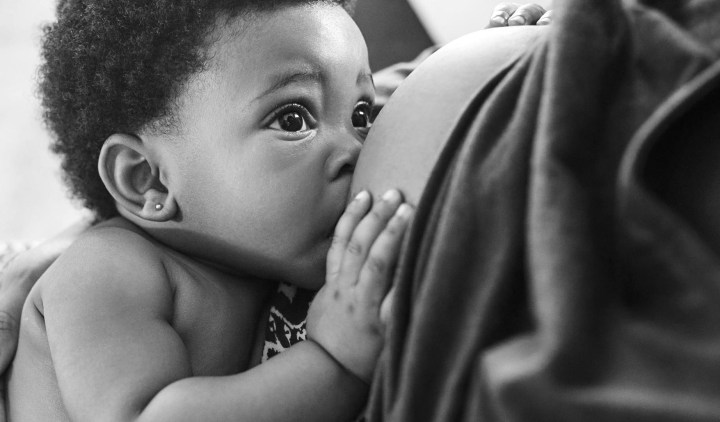BEST PRACTICE OP-ED
Five ways to improve domestic workers’ maternity protection

New research from the University of the Western Cape describes how domestic workers in South Africa struggle to access maternity protection, making it difficult for them to breastfeed, and this in turn has far-reaching implications in a country like South Africa with low breastfeeding rates. The researchers also make five recommendations on how to improve access to maternity protection.
Unpaid leave, discrimination and job insecurity
Key findings in the paper include that health protection during pregnancy and breastfeeding is variable, and usually only made available at the discretion of the employer. To access healthcare when they are pregnant or after the baby has been born (postnatal clinic visits), domestic workers usually need to take unpaid leave.
Some domestic workers experience discrimination, and many experience job insecurity due to pregnancy and childbirth. Domestic workers can’t access paid maternity leave, despite a national social insurance programme managed through the Unemployment Insurance Fund (UIF) and for which domestic workers are legally eligible. The only payment that most domestic workers can access when they are on maternity leave is the Child Support Grant, which is often much less than what their salary would have been.
Since the maternity leave available to domestic workers is unpaid, it is unaffordable and, therefore, inaccessible, and many return to work soon after childbirth, making it very challenging to initiate and sustain breastfeeding.
Domestic workers in South Africa are not familiar with their entitlement to breastfeeding breaks on return to work, and there are challenges for them to store their expressed breastmilk at work. Equally, domestic workers struggle to access childcare on return to work.
Inaccessibility to maternity protection for domestic workers makes breastfeeding challenging
In the research, one participant described how she went back to work two weeks (14 days) after delivering her baby, because “I didn’t get paid. Because there’s no food on the table, so I got up and go and work.”
This is unacceptable. A woman cannot physically recover from childbirth, make childcare arrangements and ensure that her newborn is adequately fed if she needs to go back to work two weeks after delivery.
Numerous issues related to maternity protection are raised by this example:
First, in South Africa, it is not mandatory for maternity leave to be paid. Although many companies and government departments do choose to provide paid maternity leave, many women – especially those working informally – can only access unpaid leave.
Second, there is supposed to be a mechanism whereby women can access cash payments while on unpaid maternity leave, in the form of the UIF. Since 2002, domestic workers have been eligible to participate in the UIF. However, this research reports many challenges faced by employers and workers in contributing to and claiming from the UIF. The UIF is not working as it should.

Comprehensive maternity protection: Entitlements for women die to pregnancy, childbirth or breastfeeding. (Image: Catherine Pereira-Kotze/DSI-NRF Centre of Excellence in Food Security)
Third, this research showed that many domestic workers fear losing their jobs when they are pregnant or have a baby. One way to ensure they keep their job is to go back to work as soon as possible, as demonstrated by this participant returning to work two weeks after delivering her baby. She was, therefore, unable to access the maternity leave, cash payments and job security components of maternity protection.
If a woman cannot breastfeed her infant, the only other option is to feed her baby with infant formula – an inferior and unaffordable option. While this research reports the experiences of women working in the domestic work sector, it is likely that there are many more women in different sectors, experiencing similar challenges.
Improving access to maternity protection
So, what can be done to improve domestic workers’ access to maternity protection and, in turn, better South Africa’s breastfeeding rates? The researchers make a number of suggestions.
First, there is a need for advocacy and awareness campaigns to ensure that all workers and employers know their respective rights or entitlements and responsibilities related to maternity protection. The Izwi Domestic Workers Alliance and the Socio-Economic Rights Institute of South Africa published A practical and legal guide to Employing a Domestic Worker in 2021 to summarise some of this information.
Read in Daily Maverick: “Breastfeeding is an investment in the next generation and the government must play its part”
Second, in a sector like domestic work, the nature of working arrangements means that flexibility is possible. Therefore, with sufficient knowledge and awareness, it would be relatively simple and cost-effective for certain components of maternity protection to be made available to domestic workers, such as breastfeeding breaks and flexible childcare arrangements.
Visit Daily Maverick’s home page for more news, analysis and investigations
Third, the current legislation in the form of the Unemployment Insurance Act (2001), the Unemployment Insurance Contributions Act (2002) and the Sectoral Determination for Domestic Work (2002) need to be better implemented and enforced. This legislation is all within the mandate of the Department of Employment and Labour. While the researchers acknowledge that it is difficult to do workplace inspections for domestic workers, since the place of work is a private household, the department could use other strategies to improve employer compliance with legislation, such as using technology and digital solutions to make it easier to register with, contribute to and claim from the UIF and to offer some type of incentive to employers for compliance.
Fourth, some components of maternity protection, such as the provision for breastfeeding breaks, are recommended in a Code of Good Practice on the Protection of Employees During Pregnancy and After the Birth of a Child. However, the code is not legally enforceable, and implementation is inconsistent. Thus, it would be better for legislation to be strengthened and clearer, so that all components of maternity protection are legally enforceable.
The fifth and final recommendation is that while South Africa has not ratified the ILO Maternity Protection Convention, doing so could put greater pressure on the government to ensure that comprehensive maternity protection is available and accessible to all workers. This is consistent with one of the recommendations from the recently published 2023 Lancet Series on Breastfeeding, for “governments and society to invest in maternity protection and enforce legislation prohibiting discrimination against women during maternity”.
Improved access to all components of maternity protection would result in improved quality of care for women during pregnancy, around the time of childbirth and on return to work, and for their newborns, especially if an enabling environment for breastfeeding (such as paid maternity leave or adequate access to the UIF, breastfeeding breaks) were created.
Comprehensive maternity protection for all domestic workers will contribute to improved care with subsequent health and development benefits for a vulnerable group of working women and their children. In turn, comprehensive maternity protection creates an environment that supports breastfeeding women, better enabling their babies to survive and grow to their full potential. Breastfeeding promotes brain development, protects infants against malnutrition, infectious diseases and death, while reducing the risk of obesity and non-communicable diseases later in life.
As called for by the authors of the recently published 2023 Lancet Series on Breastfeeding, breastfeeding is a key component of infant and young child nutrition and development and should be society’s collective responsibility and not the sole concern of women, and should be effectively protected, promoted and supported by the whole of society. DM/MC
Pereira-Kotze has been working in the field of public health nutrition for 18 years, with a keen interest in the protection, promotion and support of optimal infant and young child nutrition.
The article, “Access to Maternity Protection and Potential Implications for Breastfeeding Practices of Domestic Workers in the Western Cape of South Africa” was recently published in the International Journal of Environmental Research and Public Health and is based on lead author Catherine (Katie) Pereira-Kotze’s PhD research. Pereira-Kotze is a PhD candidate based at the School of Public Health (SOPH) at UWC and has received funding for her doctoral studies from the DSI-NRF Centre of Excellence for Food Security (CoE-FS).
Co-authors* of this paper are Professor Mieke Faber and Professor Tanya Doherty from the South African Medical Research Council, and both extraordinary professors at the SOPH, and Luke Kannemeyer from SweepSouth.
Access the journal article here.



















Comments - Please login in order to comment.